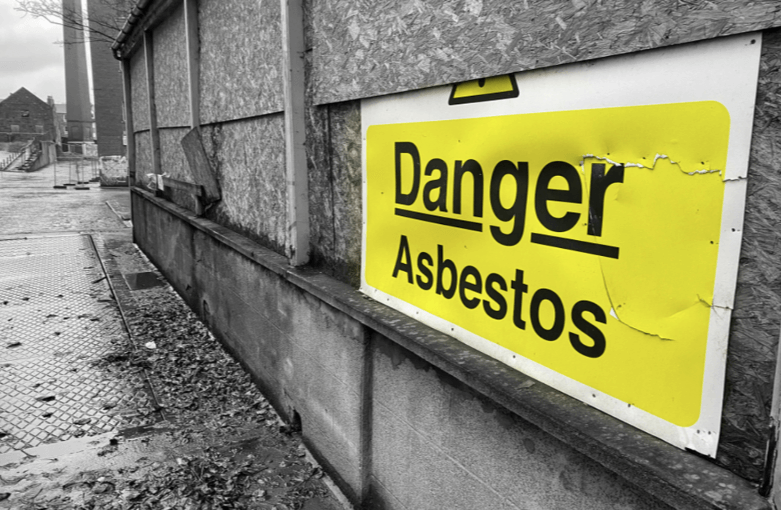What is mesothelioma?
Mesothelioma is a type of cancer. It affects the linings of the lungs. In almost every case it is caused by an individual’s historic exposure to asbestos. In other words, people get mesothelioma and other types of asbestos disease from having been exposed to asbestos dust and fibres, years ago.
Most mesothelioma sufferers got the disease through having worked in an environment where they came into contact with asbestos on a regular basis. In some cases, they worked with asbestos themselves. Other people got the disease from being close to others who were working with asbestos. Some workplaces operated with an almost constant cloud of asbestos dust being present in the air.
It takes a long time for mesothelioma to develop in a person who has been exposed to asbestos fibres. A period of 20 years is by no means an unusual lapse of time before the symptoms of the disease appear. It is a deadly and cruel disease because by the time a sufferer gets diagnosed with mesothelioma, the individual is likely to be in their late 60s, 70s or 80s and enjoying their well-earned retirement.
Ironically once diagnosed, mesothelioma develops very quickly. It takes so long to develop as an illness and produce symptoms yet is likely to cause death, within an average period of 12 to 21 months from diagnosis.
What are the symptoms of mesothelioma?
Pleural mesothelioma
- Shortness of breath
- Weight loss
- Fever
- Pains in the chest or lower back
- Persistent cough
- Tiredness
- Excessive sweating
- Swelling of face/arms
- Problems swallowing
Peritoneal mesothelioma (abdominal lining)
- Stomach pain
- Swelling of the abdomen
- Sickness (vomiting)
- Constipation
What is the prognosis for mesothelioma?
There is currently no cure for mesothelioma. It is a terminal illness. Most people with mesothelioma have a life expectancy of between 1 and 5 years. Clinical trials are constantly being undertaken to try and find a cure for the disease. Some patients who have undergone drug trials have been treated with drugs that have lengthened their lifespans by several years. Surgery can also extend the period of survival in some patients
I have worked with asbestos, am I at risk of getting mesothelioma?
Anyone who has worked with asbestos or who worked in close proximity to fellow employees who used asbestos products in their work, are at significant risk of developing mesothelioma or another asbestos disease. The more prolonged the period of exposure, the higher the likelihood of getting one of the asbestos diseases.
It is worth mentioning here that not everyone who worked in an occupation where they were exposed to asbestos, goes on to develop asbestos disease.
Why do some people get mesothelioma, whilst others do not?
There is no hard and fast answer to that question. A person’s lifestyle can have some influence. A lot of people who get mesothelioma have been heavy smokers. That isn’t always the case though.
However, genetics may also play a part in whether one person gets mesothelioma, whilst another doesn’t.
Ultimately, in most cases, whether someone who has had significant exposure to asbestos gets mesothelioma or not, is down to luck.
What are the high risk occupations for causing mesothelioma?
Asbestos was so popular because it was a strong and yet flexible material. Couple this with its heat resistant properties and it was a go to material in so many types of industry that it would be impossible to name them all here. Some of the highest risk occupations and places of work include:
- Railway engineering yards
- Docks
- Shipyards
- Power Stations
- Construction sites
- Industrial workers – steel, textile
- Boiler insultation work
- Pipe lagging
- Firefighters
- Electricians
- Joiners/carpenters
- Labourers
- Asbestos factories e.g. Turner & Newall
- Chemical plants
- Steel works
Why are people still getting mesothelioma?
The use of asbestos was banned in the UK in two stages.
In 1985 the two deadliest kinds of asbestos, blue (crocidolite) and brown (amosite) were banned both from use and import. In 1999 white asbestos (chrysotile) was similarly banned.
It would be logical to assume therefore that the problem posed by working with asbestos would by now have died out.
The problem is that mesothelioma and the other asbestos diseases, take so long to develop after exposure. We have previously mentioned that it isn’t unusual for it to take 20 years for mesothelioma to show symptoms in an individual who has been exposed to asbestos. The reality is that this long period (known as the ‘latency period’) can be anything from 10 years through to 50 years or even longer.
The latency period is the reason that the latest statistics from the HSE (Health and Safety Executive) reveal that 2446 people died from mesothelioma in 2018. This figure has been reasonably consistent for a while. It is anticipated that these numbers will start to fall in the next few years. However, similar predictions have been made before, without them coming to fruition.
What if the business that caused you to suffer from asbestos exposure is no longer operating?
Even if the business that you worked for when you became exposed to the asbestos that has caused mesothelioma, has long since closed down, you still have a very good chance of getting mesothelioma compensation. Experienced asbestos disease solicitors are often able to find out the identity of your former employers’ insurance company.
Once they have done that, then they can make a mesothelioma claim on your behalf, in the knowledge that if the claim is successful, you will get paid compensation.
If you have been diagnosed with mesothelioma or believe you may have symptoms of asbestos disease, then contact Mooneerams solicitors on 029 2048 3615. If you have mesothelioma or its symptoms, you will be able to arrange a consultation with our experienced mesothelioma claims solicitor at our offices in Cardiff, at your home anywhere in the country, or via Zoom or another video conferencing app.
Call Mooneerams now on 029 2048 3615 or leave your details on our Contact Us page, and we will call you back.
For more information on making a mesothelioma claim, read our blog post: How do you go about making a mesothelioma claim?





















